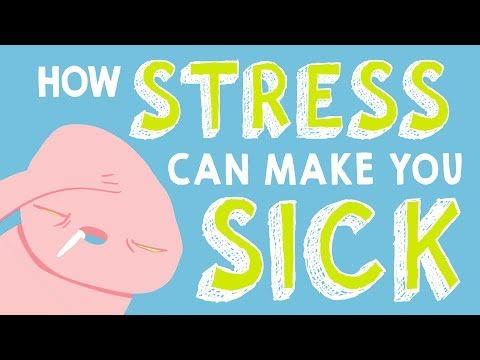The Effects Of Stress On Your Entire Body, As Told By This Unique Animation

Stress is a natural physiological response to fight-or-flight situations, but if it lasts for too long, it can leave long-term effects on your body. Stress can affect nearly every aspect of your health — from your nervous system to your cardiovascular health — and it can increase your risk for a variety of chronic diseases, like obesity, cancer, and heart disease. The animation above succinctly illuminates how this all happens.
Narrated by TED-Ed, the animation takes us through several systems that are impacted by stress. Our body releases three stress hormones called cortisol, epinephrine (adrenaline), and norepinephrine that in turn trigger physiological changes. They travel through the blood vessels to your heart and other organs, raising your blood pressure, which can lead to hypertension and cholesterol/plaque buildup over time.
The brain then releases signals to your stomach, which can impact the way you eat and digest food. Many times, stress can cause us to over-eat energy-dense foods like carbohydrates, leading to weight gain. In addition to being linked to shortening our telomeres, the caps at the end of DNA strands that dictate cellular aging, stress can cause more obvious changes: tension headaches, mood swings, fatigue, and inability to focus.
That’s why it’s so important to find ways to master sources of stress through healthy activities like meditation, yoga, and simple relaxation. Don't let the health risks of stress stress you out even more; know that you can handle everything in due time. For tips on reducing stress, read the five best ways to lower stress while working full-time or how mindfulness and meditation can help.



























